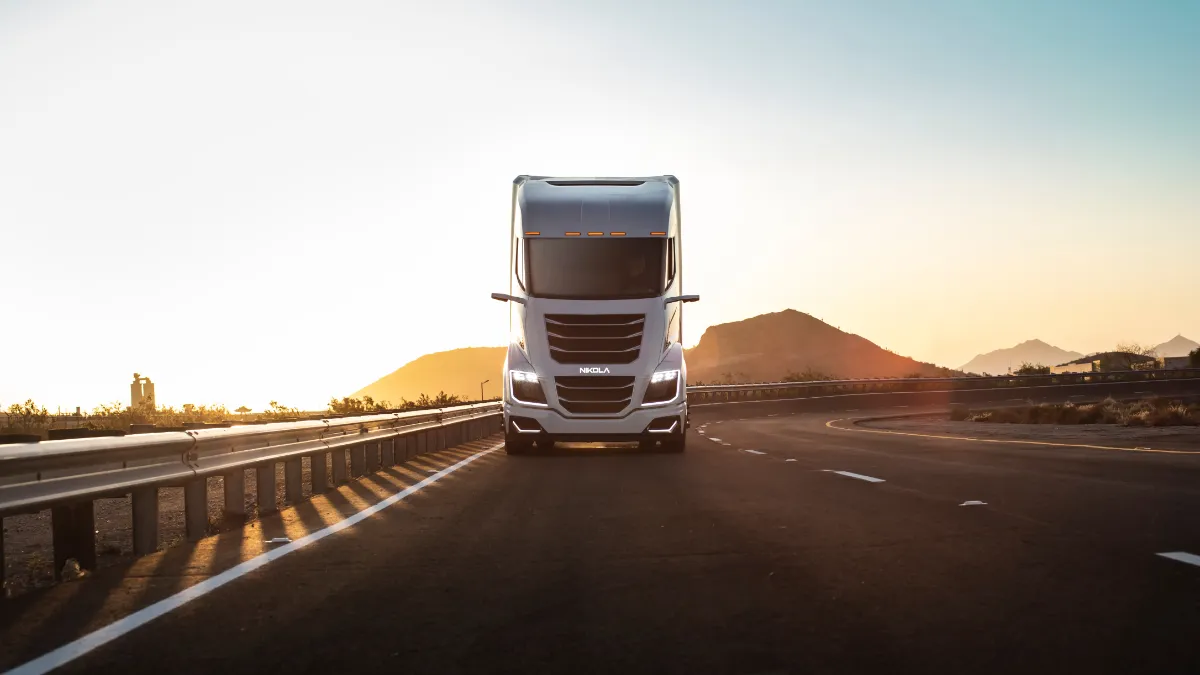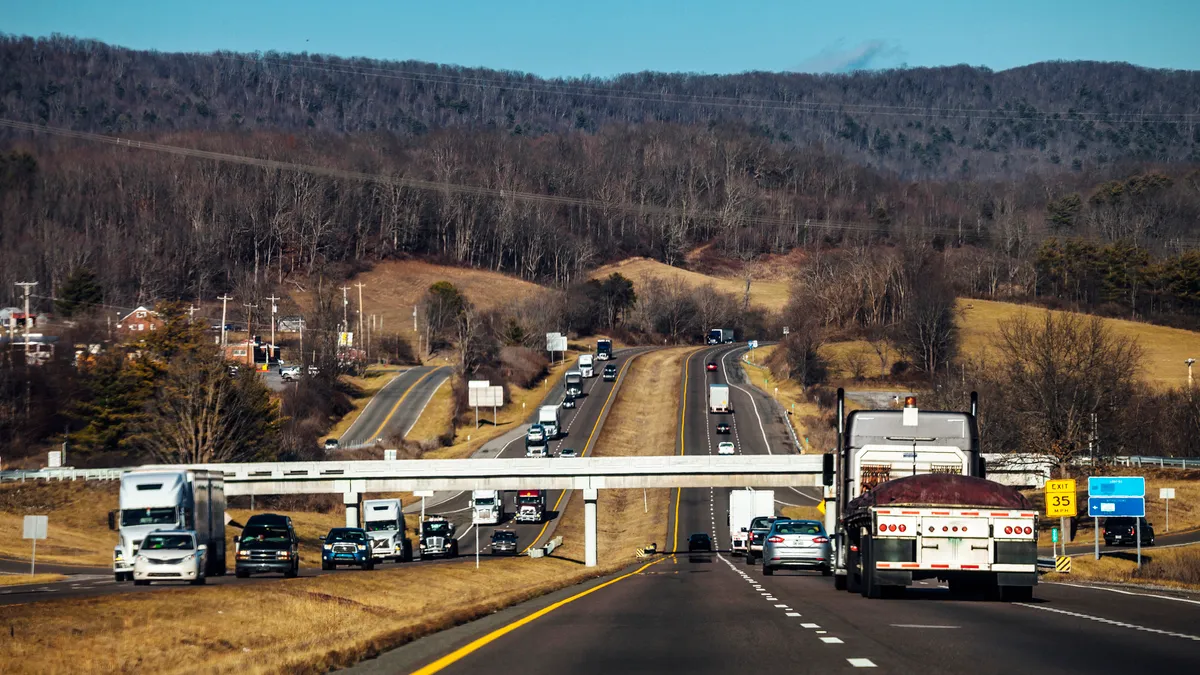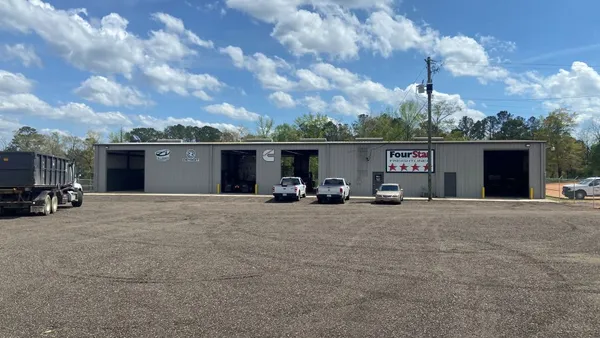Dive Brief:
- Nikola is not looking for new customers, CEO Mark Russell said on the company's Q3 earnings call Monday. "We're very, very careful about who we make a hard contract with," Russell said. Launch customers are collaborating with Nikola on vehicle design, testing and validation. Nikola is aiming to announce a customer agreement before year's end.
- The OEM is focusing on specific launch customers because it doesn't "want to get involved in a huge number of customers with a small number of trucks with each," Russell said. The company plans to produce trucks for regular customer sales in the fall of 2021 and ship those units to fleets at the end of that year.
- Nikola is confident about demand, especially considering the presidential election, officials said. State-level and other efforts to curb emissions "can only accelerate" under President-elect Joe Biden's administration, Russell said. And CFO Kim Brady said he expects greater federal participation in green initiatives. "It's going to be good for Nikola," he said.
Dive Insight:
Nikola officials' outward optimism hasn't camouflaged the OEM's troubles to investors and analysts. The company posted no profits in Q3, and net loss increased by more than $100 million compared to the same quarter last year.
Additionally, Nikola's deal with GM — seen as a milestone that would help cement Nikola as a serious player — still has not closed, following a short seller's critical report that led Nikola founder Trevor Milton to exit the company. Nikola is cooperating with the Securities and Exchange Commission and the Department of Justice as they look into that report, Russell confirmed on the call.
The GM partnership has major implications for the Nikola Badger pickup truck, which is what the deal centered on, and would save Nikola billions in factory construction.
But Russell reaffirmed that Nikola's heavy-duty line can progress without the partnership. GM would supply another battery system option to the program, so Nikola can and is moving the Tre battery-electric vehicle into production without equipment from GM.
"Our primary path is the [battery] pack that we've already developed, which we are going into production with now. So, GM was just going to give us an additional option for our next-generation vehicles, especially in the event that technology is able to hit its targets in terms of performance and cost, which are very aggressive," Russell said.
Brady said Nikola should have greater clarity about the GM partnership "in the next couple of weeks." The potential hit to Nikola's reputation hasn't changed its collaboration-focused business strategy.
Russell said Nikola is having conversations with a variety of fueling companies, including those with existing fossil fuel stations for heavy trucks, electric utilities, renewable energy firms, solar providers, hydrogen specialists and firms that deal in multiple specialties.
"I believe that before we are done building out our network of hydrogen fueling stations in our supply chain, that we will have done some deals with pretty much all of the above," Russell said. "And what we announced first will depend on which one makes the most sense to start with." He said Nikola aims to announce an infrastructure partnership for hydrogen before the end of the year.
Infrastructure is one of the biggest hurdles to widespread electric truck deployment. But going forward, under a new administration, Nikola is anticipating considerable demand. Russell said that interest and need for the OEM's vehicles "has never been higher." Market competition isn't scaring Nikola off, either.
"We've said many times that we welcome everybody into the space, because we think it's going to take the effort of many capable and competent players to meet the needs of the commercial transportation market, as it transitions from fossil fuels to emissions. So it's not a demand problem," Russell said.
He acknowledged that it's currently unknown what the makeup of the Senate will look like for the next two years, as races head to a runoff in Georgia. If the Democrats take the majority, Russell said, it brings about the possibility of a Green-New-Deal-type of legislation, "which of course makes the whole country look more like California," he said.
"All of those things will be positive for the demand profile for our products and for our business model," Russell said.
Brady mentioned the possibility of the U.S. reentering the Paris accord under a Biden administration, and said he thought the administration would look at green energy as a source of job creation.
"This is going to be an important transition. Especially in the U.S., there has been less focus on this emphasis [under] the Trump administration, but we think that will definitely change," Brady said.











